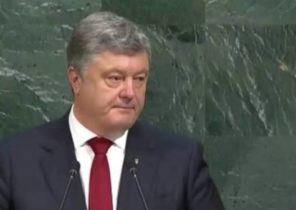Moscow — For much of the post-Soviet period, officials of the Russian energy industry has resisted calls from OPEC countries to participate in production cuts to support world oil prices. They referred to the fact that in cold climates of Russia to make it impossible.
This week, faced with the overabundance of oil that cannot be sold and have nowhere to store, the energy Ministry announced plans to cut output by about a fifth and preserving wells, many of which are in the Arctic.
The Russian government, which did not want to share the burden of cuts from OPEC, has long insisted that Russia is much more difficult to reduce oil production compared to oil kingdoms, located in the deserts. Wells that are drilled in the permafrost, it is impossible to preserve, because they freeze and they will need to drill again in that case, if they decide to re-open.
Analysts called the allegations a cold climate one of the major geopolitical deceptions of the global oil industry, and Russian officials have for decades resorted to this deception to evade the requirements of the OPEC countries to assist them in maintaining oil prices.
“For the most part it’s crap,’ said Thomas reed (Thomas Reed), an investor from Houston and a former oil Executive with experience in Siberia, referring to the statement about the cold climate. — Most oil wells can be maintained without any problems.”
This view confirms the fact that Russia now began hastily to preserve their oil wells. And found that canning wells in Siberia and the far East is not much more difficult than in other regions.
“The level of execution of the transaction will be 100%,” — said Russian energy Minister Alexander Novak in interview to the Russian news Agency “Interfax” on Wednesday, April 29. Moscow has promised to cut production by about 2 million barrels per day, i.e. approximately one-fifth of the pre-crisis level.
According to Novak, the reduction started already last week: “All the company assumed obligations to implement the agreements.”
After the collapse of the Soviet Union, the OPEC countries tried to involve Russia in various agreements on production cuts, arguing that Russia — the world’s largest exporter of hydrocarbons, if we consider oil and gas — is reaping the fruits of the policy of maintaining the prices, while not wanting to share the burden with other countries-exporters.
In response, Russia has repeatedly resorted to the argument of cold climate: according to official statements, it was after the fall in oil prices in 1998 and during the global crisis ten years later.
The theme of cold climate re-emerged in the negotiations with representatives of Saudi Arabia in Vienna in 2014, and in 2016, when Russia initially refused to sign the agreement with OPEC, and then agreed to a slight decrease in production volumes. Russian officials insisted that Russia does not support the proposed reduction of OPEC not to keep their profits, but because of the cold climate in Siberia.
“We can’t work as work of OPEC”, — said Igor Sechin, head of Russian state company “Rosneft”, at the forum International Petroleum Week (“international petroleum week”) in London in 2016, first citing the fact that Russian oil companies are private, and then referring to the cold climate. He added that sometimes the temperature in the Russian oil fields down to minus 50 degrees Celsius. “We tried to explain it to our friends in OPEC,” he added.
According to experts, there is no doubt that the cold really entails a number of problems, however, insurmountable obstacles still there.
Part of Russian oil is naturally enriched with paraffin wax, and its temperature remains high enough to enable it to flow. On the surface this wax is separated from oil, and dumped in large amounts around the fields. These fields will be required before the conservation of the wells to clean the pipe, otherwise the wax will harden into one giant candle.
In the case of many other drilling engineers extracting oil, pumping water through hundreds or even thousands of feet of permafrost to create pressure and push oil to the surface. Canning these wells, engineers will need to verify that these columns of water will not rise to the level of the permafrost.
However, all these problems kompensiruet the significant benefits that can accrue from the closure of wells because of it for a while nothing is extracted, the pressure in the oil reservoir often increases. And when the well reopens, it begins to provide more oil than its closure.
In fact, in Russia, as in other countries, geologists can regularly one or more wells in the fields for analysis the pressure at the well head. No harm from this.
“I don’t think there are many problems, — said Alexander burgansky, oil analyst at Moscow investment Bank “Renaissance Capital”. Oil companies know how to do it”.
Even before the pandemic coronavirus has brought down the demand for oil, demonstrating that Russia is still able to cut oil production, Saudi Arabia is skeptical of the statements of the Russians about the cold climate. In 2014 the then Minister of energy of Saudi Arabia Ali al-Naimi (Ali al-Naimi) demonstratively left the session after Sechin said that Russia can not reduce production. About this al-Naimi wrote in his memoirs called “From the wilderness” (“Out of the Desert”).
Michael Lynch (Michael Lynch), fellow of the research Foundation’s energy policy (Energy Policy Research Foundation) in Washington, said that Russians “have always resorted to the argument that to decrease the production they need time”. “I believe that is 90% rationalization”, he added.







